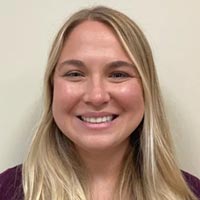Recover from a neck strain with expert guidance
Posted On: April 5, 2024 by Lindsay Matijevich

Neck strain, also known as a pulled muscle, is a common condition that can occur when the muscles in the neck are stretched or torn due to sudden movement, overuse, or poor posture. Neck strain can be characterized by pain, stiffness, and a limited range of motion.
If you have been diagnosed with a neck strain, you may be wondering how to treat it and recover quickly. In this blog post, we will be discussing expert guidance tips to help you recover from neck strain.
Common Symptoms and Overview of Neck Strain
A neck strain is a common injury that can occur for various reasons. The most common symptoms of a neck strain include:
- Pain and stiffness in the neck;
- limited range of motion;
- headache;
- muscle spasms;
- tenderness;
- swelling;
It is essential that you get medical help if you experience any of these symptoms in order to get an accurate diagnosis. In order to determine the severity of your neck strain, your doctor may do imaging tests, a physical examination, or other diagnostic procedures.
Ways to Treat Neck Strains at Home
Once you have been diagnosed with a neck strain, your doctor may recommend various treatments to help you recover from the injury. One of the most effective ways to treat neck strain is to rest your neck and avoid any activities that may aggravate the condition. Here are some tips to help you treat neck strain at home:
Apply Ice or Heat: To reduce discomfort and inflammation, apply heat or ice to the injured area. Apply a heat pad or cold pack to the neck for 15 to 20 minutes at a time while it’s wrapped in a towel.
Take Over-the-Counter Pain Relievers: Acetaminophen or ibuprofen, two common over-the-counter pain medications, can help lessen discomfort and inflammation. But remember, taking any medication without visiting a doctor is a risk.
Practice Gentle Stretching Exercises: Gentle stretching exercises can help improve your range of motion and reduce stiffness in the neck. Consult with your doctor or a physical therapist in Jefferson city before starting any stretching exercises.
Consider using a neck brace: Supporting your neck and relieving muscle strain are two benefits of wearing a neck brace. If the strain on your neck is severe, your doctor might suggest a brace for you.
When Should You Seek a Doctor’s Help?
While most neck strains can be treated at home, there are some that might need to be seen by a doctor. If you face any of the following symptoms, you should see a doctor right away:
– While some discomfort is to be expected with a strain on the neck, severe, chronic pain that does not go away with rest or medicine needs to be addressed right away. This degree of discomfort could be a sign of a more serious underlying problem, like a spinal cord injury or herniated disc.
– Radiating numbness or tingling into the hands or down the arms may indicate a nerve injury or compression. This symptom indicates that there may be a neurological impact from the neck strain, necessitating an immediate assessment by a medical practitioner.
– Weakness in the hands or arms may be a sign of nerve or muscle involvement, especially if it is accompanied by additional symptoms like pain or numbness. Weakness can make daily tasks difficult, but it’s important to pay attention to it since it could be a sign of a more serious underlying illness.
– Difficulty breathing or swallowing associated with neck strain can be a cause for concern, as it may indicate compression of the airway or esophagus. These symptoms require immediate medical attention to rule out more severe complications and ensure proper evaluation and treatment.
– Loss of bladder or bowel control is a serious symptom that should never be ignored. While rare, it can be indicative of severe spinal cord compression or damage, requiring urgent medical intervention to prevent further complications.
These symptoms may indicate a more severe condition, such as a herniated disc or a spinal cord injury. It is essential to seek medical attention immediately to prevent further damage.
Why Self-Medication or Healing is Not the Best Option
Treating neck strain with self-medication or self-healing is not the best course of action. Although it could be tempting to depend on over-the-counter medications or home cures, these therapies might not be successful in overcoming the underlying issue. Furthermore, self-medication might worsen the condition or result in new problems, making the symptoms worse.
It is way better to seek medical attention if you experience any symptoms of neck strain. Your doctor can diagnose the condition accurately and recommend appropriate treatment options to help you recover from the injury.
Additional Tips to Prevent Neck Strain
Preventing neck strain is essential to avoiding future injuries. Here are some tips to help you prevent neck strain:
Practice good posture: Keeping your proper posture will help ease the strain on your neck muscles. Have a relaxed shoulder stance and minimize slouching or hunching over.
Take Frequent Breaks: If you work in a job that requires you to sit for long periods, take frequent breaks to stretch your neck and shoulders.
Exercise Regularly: Regular physical activity can lower your chances of neck strain while improving your general health. A physical therapist or your doctor should be consulted before beginning any workout regimen.
Use Proper Ergonomics: Use proper ergonomics when working at a desk or using a computer. Make sure your chair, desk, and computer are at the correct height to avoid straining your neck.
Conclusion
In conclusion, neck strain can be a painful and debilitating condition, but with the right treatment and guidance, you can recover quickly and prevent future injuries. If you experience any symptoms of neck strain, seek medical attention immediately and follow the expert guidance tips mentioned above.
Remember, prevention is key, so take care of your neck muscles and practice good posture and ergonomics to avoid future neck strain injuries. If you feel something is wrong, feel free to contact Mossy Creek Rehab to get help.

